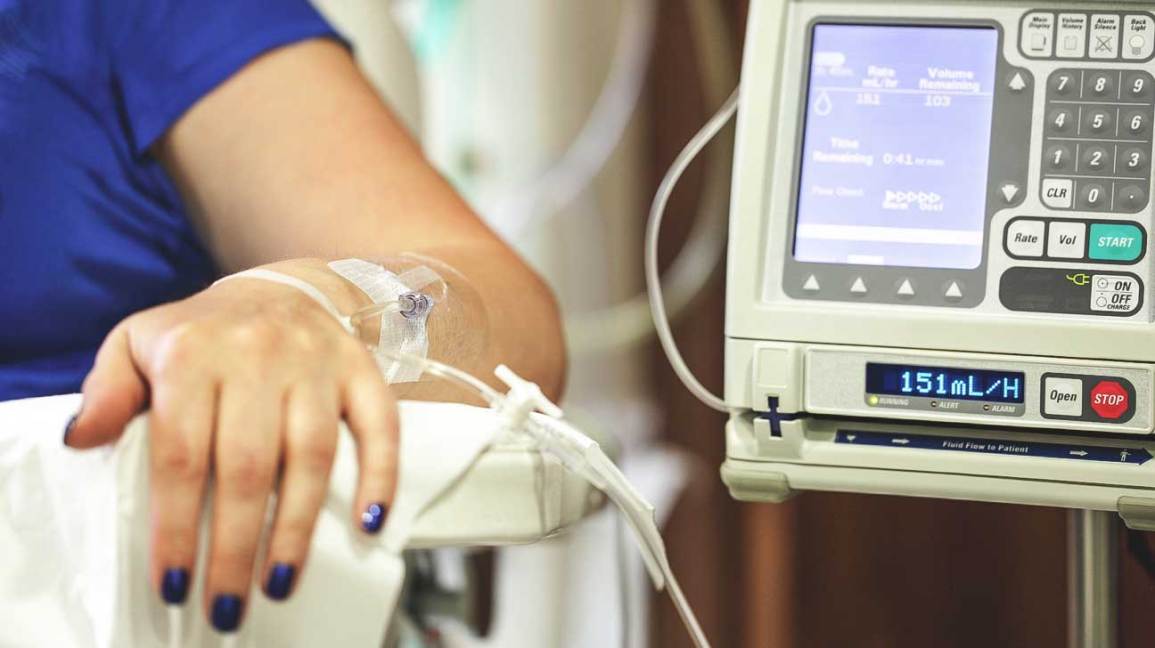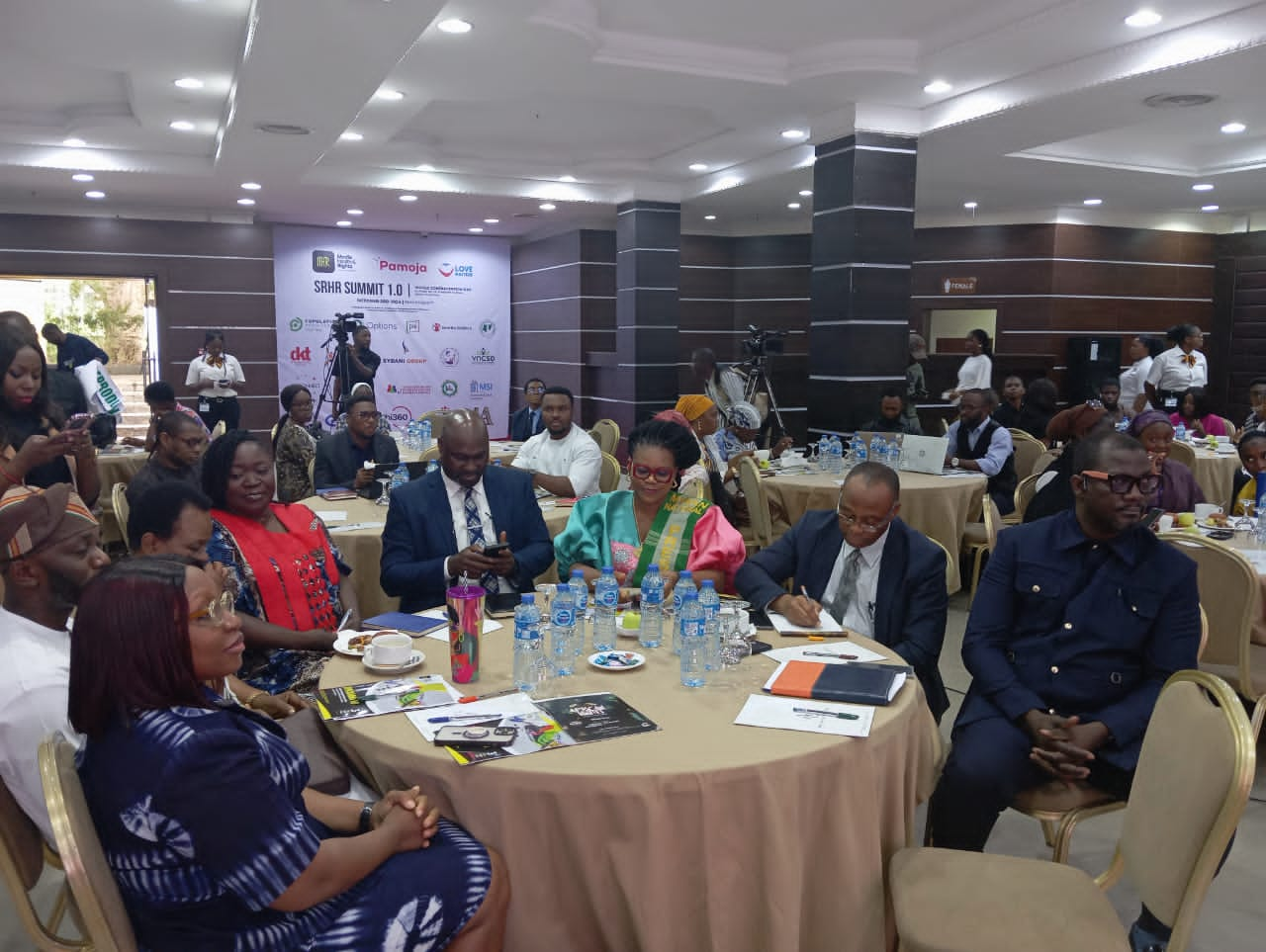Health
Cancer Care: FG Approves 12 Additional Hospitals for Chemotherapy

The Minister of Health, Dr Osagie Ehanire, has approved 12 additional hospitals for chemotherapy in the ongoing Cancer Access Partnership Programme at over 50 per cent cost reduction.
He disclosed this in a statement he issued on Thursday in Abuja to mark the World Cancer Day, annually marked on Feb.
4 to raise awareness on cancer and to encourage its prevention, early detection, and treatment.He said that the Federal Ministry of Health under his watch had continued to improve access to cancer care services, especially in diagnosis, chemotherapy and radiotherapy services.
Chemotherapy is an aggressive form of chemical drug therapy meant to destroy rapidly growing cells in the body.
It’s usually used to treat cancer, as cancer cells grow and divide faster than other cells.Radiotherapy, also another way of treating cancer, is where radiation is used to kill cancer cells. It may be used in the early stages of cancer.
Ehanire, therefore, stated that “we are currently improving services in some hospitals across the country, with installation of radiotherapy machines already in advanced stages in UNTH Enugu, UBTH Benin, UDUTH Sokoto, UCH Ibadan and ABUTH Zaria.
“These would have been completed, but for the hitches caused by the COVID-19 pandemic.
“I also approved the inclusion of 12 additional hospitals in the ongoing Cancer Access Partnership (CAP) Programme; this will increase the number of hospitals offering this service from seven as at the 2020 World Cancer Day to 18 as at today.
“The initial seven hospitals offering the service were National Hospital Abuja, ABUTH Zaria, AKTH Kano, OAUTHC Ile-Ife, UCH Ibadan, LUTH Lagos and UNTH Enugu.
“The additional hospitals are FTH Gombe, UPTH Port Harcourt, UBTH Benin, UITH Ilorin, UCTH Calabar, AEFUTHA Abakaliki, JUTHJos, UDUTH Sokoto, FMC Birnin Kebbi, NAUTH Nnewi, ABUTH Bauchi and Kalgo Medical Centre in Kebbi.
“The CAP programme also improved from nine molecules from one manufacturer to 20 products in 29 formulations from three manufacturers.’’
According to him, the Federal Ministry of Health successfully developed a National Chemotherapy Safety (ChemoSafe) policy in 2020, which will be launched soon.
He said “we also developed a National Hospice and Palliative Care Policy to address the Palliative Care Need of cancer patients and other patients that may need the services.
“This policy will also be launched this year.’’
The minister noted that government established the Cancer Health Management Fund in 2020 to demonstrate its commitment to improving access to cancer care services.
He added that government had already developed an indigent patients’ selection criteria to ensure that only those who needed the fund benefit from it.
“This is meant to complement other patients assisted programmes like the National Health Insurance Scheme (NHIS) and the CAP programme.
“We are currently working out modalities to ensure that almost all cancer care services are covered by NHIS.’’
Ehanire urged stakeholders in the Cancer Ecosystem to join hands with the ministry to take the war against cancer to the next level.
Globally, he said, there was continuous rise in the incidence of cancers, especially in low- and middle-income countries, including Nigeria.
He said “according to available statistics from our Cancer Registries, the Age Standardised incidence Rate (ASR) in males started rising at age 35-39 years and peaked by 70 – 74 years, while the rise in females startedat age 25-29 years and peaked at 65-69 years between 2009 and now.
“We have also started seeing increased incidence of childhood cancers, especially haematological cancers in our facilities.”
According to him, the theme of the 2021 World Cancer Day “I AM and I WILL” is still the theme that has been reflected on for 2019 and 2020.
He explained that the ministry had commenced full implementation of the “screen, see and treat” programme of the Federal Ministry of Health in collaboration with the Clinton Health Access Initiative (CHAI).
“The objective of this programme is to embark on massive awareness, free screening and treatment of precancerous lesions of 430,000 women in three pilot states of Kaduna, Lagos and Rivers.
“And in 2020, over 1000 Health Care Workers (doctors, nurses, Lab scientists, CHEWS and data collectors) in the three states and the Federal Capital Territory were trained and over one thousand women screened in the course of hands-on training of the health professionals.’’
In addition, he said, the ministry had intensified efforts to ensure wider accessibility and availability of Human Papilloma Virus vaccine through the National Primary Healthcare Development Agency (NPHCDA) within this year 2021.
“This will target our young girls and boys (9-13 years of age) to eliminate Human Papilloma Virus (HPV) which is known to be responsible for over 70 per cent of cervical cancer cases,” the minister noted. (NAN)
Health
Cholera: FG Raises Alarm over 14,000 Cases in 35 States and FCT

By Laide Akinboade, Abuja
The Federal Government, FG, on Thursday raised alarm over 14, 237 confirmed cases of cholera in 35 states and the Federal Capital Territory (FCT), in 339 local government areas, in 2024.This was revealed Dr. Olajide Idris, Director General and Chief Executive Officer of the Nigeria Centre for Disease Control, NCDC, in a press briefing organized by NCDC, in Abuja.
He added that 378 people have already lost their lives in the same period, Epi Week 39. According to NCDC boss, “Let me begin by addressing the cholera outbreak currently affecting Nigeria. Cholera, as we know, remains a serious public health issue, particularly in areas with inadequate water, sanitation, and hygiene (WASH) systems. The NCDC, in collaboration with relevant stakeholders, has been working tirelessly to mitigate the spread of this and save lives.”As of October 13, 2024, a total of 14,237 cases of cholera have been reported across 35 states and the Federal Capital Territory (FCT), spanning 339 local government areas. Sadly, 378 lives have been lost, resulting in a case fatality ratio (CFR) of about 2.7%. The burden of this outbreak disproportionately affects the most vulnerable – children under the age of five. This year has seen two significant waves of cholera, with the most recent surge, reported durin the week of September 29 (Epi Week 39), attributed to the heavy rains and subsequent flooding. This is a pattern we anticipated, having foreseen the risks through data and advisories provided by the Nigerian Meteorological Agency (NiMET).”The floods in the northern states such as Borno, Adamawa, Jigawa, Yobe, and Kano have exacerbated the spread of cholera, making these states the current epicenters of the outbreak”.He explained, “Earlier in the year, the cholera cases were concentrated in southern states as the rains began there, but we have seen a shift, with northern states now accounting for a significant portion of cases. The number of suspected cholera cases and deaths in 2024 has more than doubled, when compared to this time last year. These numbers reflect the severity of the outbreak and reinforce the need for continuous vigilance and action. It also underscores the developmental issues that should be addressed both at the national and subnational levels with improved commitment towards addressing challenges relating to inadequate access to clean water, open defaecation, poor environmental sanitation, food and personal hygiene”.On Mpox, Idris, said as of 13th October, a total of 102 confirmed cases have been recorded across 26 states and the FCT, from 1,339 suspected cases. Encouragingly, there have been no recorded deaths, but we remain cautiousAccording to him, “In response to the increasing threat of Mpox, especially in light of regional cross-border transmission, the NCDC has reinforced its strategy to prevent the spread of the virus. We are primarily dealing with the Clade IIB variant, which has been circulating in Nigeria; however, we are also monitoring the situation in Cameroun where both Clade IB & IIB are reported, and heightening our surveillance for the Clade IB, a more severe strain currently circulating in Kenya, Uganda, Burundi, and the DRC, which has the potential for rapid spread through community transmission.”Turning to Mpox, Nigeria has continued to manage the outbreak with vigilance. As of 13th October, a total of 102 confirmed cases have been recorded across 26 states and the FCT, from 1,339 suspected cases. Encouragingly, there have been no recorded deaths, but we remain cautious. The observed steady rise on the number of reported cases in recent weeks can be attributed to enhanced surveillance and improved case detection across the country”.On Mpox he said response strategy like, “Stakeholder Engagement: We are working with partners and international agencies, aligning our efforts and strengthening collaboration & coordination. We are particularly focusing on cross-border collaboration to prevent importation of more severe Mpox variants.”Surveillance and Diagnostic Capacity: We continue to enhance surveillance across the country through active case search. Our ports of entry, including airports, are closely being monitored, and passengers are required to complete health declaration forms. Additionally, we are optimizing laboratory diagnostic capacity by expanding molecular testing facilities in strategic states such as Enugu, Cross River and Bauchi. Our partnership with the International Federation of Red Cross has also enabled us to train 55 public health workers across 11 states to bolster response efforts.”Community Engagement: Public health advisories, jingles, pamphlets, and community mobilization efforts are ongoing across the country. We are working closely with states to disseminate Mpox awareness materials in various languages, ensuring that information reaches even the most remote areas.”Vaccination Campaign: In partnership with the NPHCDA and NAFDAC, we are facilitating the deployment of 10,000 doses of the Mpox Jynneos vaccine, prioritizing high-risk groups such as contacts of confirmed cases and immunocompromised individuals. Priority states for this vaccination campaign include Bayelsa, Rivers, Cross River, and Akwa Ibom, based on the burden of Mpox cases reported since 2017.Anyone with rash illness is advised to visit nearest health facility for care. The general public is advised to avoid direct contact with sick or dead animals and avoid consumption of under-cooked meat”.On Lassa Fever Update since the beginning of 2024, Nigeria has recorded 1,018 confirmed cases of Lassa fever and 172 deaths, with the majority of cases reported from Ondo, Edo, and Bauchi states.”While the peak of the Lassa fever outbreak was declared over in April, sporadic cases continue to be reported, with 37 new cases and four deaths recorded in the past month alone. This reaffirms that Lassa fever remains a persistent health threat, particularly as we approach the dry season when cases typically surge, he said.On prevention of Cerebrospinal Meningitis (CSM)over 400 healthcare workers across nine states have been trained in case management and cerebrospinal fluid collection, which is essential for accurate laboratory diagnosis and effective treatment.Idris, said NCDC is also collaborating with other government agencies like the National Council on Climate Change and the Nigerian Meteorological Agency (NiMet), to enhance capacity for climate-informed decision-makingHe reiterated that, “Nigeria Centre for Disease Control and Prevention remains at the forefront of the fight to protect public health in Nigeria. Through coordinated efforts with local and international partners, we are committed to providing the highest level of protection against these disease threats”.Health
Stakeholders Raise Alarm over 610,000 Unsafe Abortions in Nigeria Yearly

By Laide Akinboade, Abuja
Stakeholders in the Health sector on Thursday, raised alarm over the 610,000 unsafe abortions are carried out annually in Nigeria.
This was revealed in Abuja in Sexual Reproductive Health and Rights, SRHR Summit 1.0, in commemoration of World Contraception Day, 2024 organized by Media, Health and Rights Initiative of Nigeria.
The theme of the conference is ‘A Choice for all. Freedom to plan, power to choose’.
The Country Director, IPAs Nigeria Health Foundation, Dr Lucky Palmer, in his opening address said it is important for Nigerian women to be able to choose what they want.
According to the IPAs boss, “Women are not able to express what they want and sometimes, just imagine going to the hospital and you are not able to express yourself.
“Unplanned pregnancy is a great challenge but these pregnancies are preventable, we shouldn’t be having unplanned pregnancies if contraceptives are free. Nigeria contributes about 28% of maternal deaths in the world”.
He urged Stakeholders in the sector, “Stakeholders must not relent in their efforts in addressing the challenges. Contraception should be available to all, including married women, young ones who are single. Contraception should not only be for married women, it should also be for young people. Other animals have sex for procreation but human beings have sex for pleasure. If we are to prevent unnecessary deaths among our women and it is imperative we have this conversation”.
He said, “About 610,000 unsafe abortions are carried out annually in Nigeria. An estimated 285, 000 women and girls experience complications from unsafe abortions in Nigeria annually. About 20,000 people die from complications arising from unsafe abortions annually in Nigeria. Half of these 20,000 who die from complications from unsafe abortion are adolescent girls.
Unsafe abortions are a major contributor of Nigeria’s high maternal mortality ratio which is among the highest in the world (1,500 women per 100,000 births).
“Only 16% of women of reproductive age use any form of contraception, with even fewer using modern methods with success rates.
“28 out of every 100 pregnancy in Nigeria are unintended and 48% of these pregnancies end in induced abortion.
While women of all age gap and socio-economic class make up the demographic of women aged 15 -19, women who have no educational background and women in the poorest communities are significantly more likely to have unsafe abortions according to research.
“72% of deaths among girls below the age of 19 are from unsafe abortion complications.
Unsafe abortions remain a significant public health issue in Nigeria, contributing to high maternal and mortality rates .
“Despite legal restrictions, induced abortion is quite common , with an estimated 1.25 million abortions performed in 2012.
“Although Nigeria ratified the Maputo protocol, an agreement among African Union countries that safe guard the reproductive rights of women and girls, abortion remains legal only to save a woman’s life.
“With an estimated abortion rate of 33 abortions per 1, 000 women, research by the Guttmacher Institute shows that most of these abortions are performed clandestinely and unsafely. In 2023, the contraceptive prevalence rate in Nigeria was a mere 16%, indicating a very low use of contraception”.
Dr. Ufuoma Omo-Obi, Board Chair, MHR, in his welcome address at the conference said, one of the most important things that would give joy to Nigerian youths is to be able to access healthcare. Especially women that are pregnant, in order to reduce Nigeria’s maternal mortality ratio burden.
According to Ufuoma, “It is imperative to join forces together to fight maternal mortality rates in Nigeria by making contraception available for all women. And Nigerian women should not be afraid to have the conversation on safe contraception, and be able to tackle these challenges. Most times people don’t know , how they can relate to these issues.
” Every woman should have right to choose, the Federal Government has a restrictive abortion law with only five states adopting the framework. With more states adopting the framework this would help to reverse the maternal mortality issues in Nigeria. Nigeria is doing well in this administration, the Federal Government has already provided $4 million dollars and United Nations Population Fund (UNFPA), giving $6 Millon for SRHR in the country”.
National President, Medical Women Association of Nigeria, MWAN, Prof. Rosemary Ogu, while speaking to journalists at the sidelines of the event, urged the three tiers of government to do more of what they are doing by opening up funding for public health, contraceptive free and making pregnancy care free in the country.
She lamented that women should be able planned choose in Nigeria.
Meanwhile, Dr Ejike Orji hinted that there has been a 40 percent reduction in maternal mortality over the period of eight years, Nigeria still has the highest number of maternal mortality in the world. He lamented that 70 percent of people who die are girls below 15 years
He said before now, donors have been supporting family planning with funds , “We must make family planning a legislative agenda the last minister of health refused to release money in his last three years but the new minister has released 4 million dollars and the donor agency 6 million dollars”.
Health
World Leaders Commit to Reduce Antimicrobial Resistance Deaths by 10% by 2030.

Global leaders have pledged to reduce by 10 per cent deaths associated with bacterial Antimicrobial Resistance (AMR) annually by 10 per cent through 2030.
WHO said on Thursday in a statement that the global leaders approved a political declaration at the 79th United Nations General Assembly (UNGA) High-Level Meeting on Antimicrobial Resistance (AMR).
It said declaration also calls for sustainable national financing and 100 million dollars in catalytic funding, to help achieve a target of at least 60 per cent of countries having funded national action plans on AMR by 2030.
The UN said that the global leaders are Food and Agriculture Organization of the United Nations (FAO), the United Nations Environment Programme (UNEP), the World Health Organisation (WHO) and the World Organisation for Animal Health (WOAH), known as the Quadripartite.
“This goal is to be reached through, for example, diversifying funding sources and securing more contributors to the Antimicrobial Resistance Multi-Partner Trust Fund.
” The Quadripartite applauds countries for recognising the need for global, regional and national efforts to address AMR through a One Health approach, which recognizes that the health of people, animals, plants
“Also,the wider environment, including ecosystems, are closely linked and interdependent,” it said.
According to the statement, the gobal champions involved with the meeting include Prime Minister Mia Mottley of Barbados, AMR survivors, civil society and stakeholder organisations from around the world.
It said that AMR occured when bacteria, viruses, fungi and parasites no longer respond to medicines, leading to infections becoming difficult or impossible to treat, increasing the risk of disease spread, severe illness and death.
It said that on human health, the declaration sets a more ambitious target that at least 70 per cent of antibiotics used for human health globally should belong to the WHO Access group antibiotics with relatively minimal side effects and lower potential to cause AMR.
It includes targets around Infection Prevention and Control (IPC), such as 100 per cent of countries having basic water, sanitation, hygiene and waste management services in all health care facilities.
It also includes 90 per cent of countries meeting all WHO’s minimum requirements for IPC programmes by 2030,”
” There are also commitments on investments to facilitate equitable access to and appropriate use of antimicrobials, as well as on reporting surveillance data on antimicrobial use and AMR across sectors,” it said.
On agriculture and animal health, the world leaders pledged meaningfully reduce in the quantity of antimicrobials used globally in the agri-food systems by prioritising and funding the implementation of measures to prevent and control infections
This is to be achieved in the context of the WOAH list of priority diseases and FAO’s RENOFARM initiative, as well as preventive strategies, including animal vaccination strategies, good husbandry practices, biosecurity, and water, sanitation and hygiene (WASH).
On the environment, the declaration underscores the need to prevent and address the discharge of antimicrobials into the environment.
It also calls for increased research and knowledge on the environmental dimensions of AMR and for catalyzing actions to address key sources of antimicrobial pollution.
Acknowledging that AMR is a complex problem, the declaration recognised the need for a multisectoral response combining human, agricultural, animal, and environmental sector-specific interventions,” it said.
Mr QU Dongyu., FAO Director-Genera said that the intersectoral challenge of AMR demanded a One Health systems approach that unites human, animal, plant, and environmental health, backed by robust and accountable global AMR governance.
According to. Dongyu, sustainable, diversified financing is essential to support the setting of clear priorities and measurable targets that drive decisive action while recognising national and regional contexts.
“We must ensure universal access to medicines, treatments, and diagnostics, especially in developing countries and in all sectors, while promoting preventive measures and investing in research, innovation, capacity building, and bold awareness initiatives.
“Our health depends on safe, nutritious food, and food security hinges on healthy, sustainable, resilient, and inclusive agrifood systems.
“For nearly 79 years, FAO has been steadfast in its mission to secure safe, nutritious food for all. We fully support this declaration and remain committed to a multisectoral, multi-stakeholder approach to eliminate AMR risks in agrifood systems,” he said.
Ms Inger Andersen, Executive Director of UNEP said that evidence was mounting that the environment played a significant role in the development, spread and transmission of AMR, including transmission between humans, and animals to humans.
According to Andersen, why if we’re to reduce the burden of AMR and its risks, the environment must be part of the solution.
“Today’s declaration recognises this need, and UNEP will continue to be at the forefront of efforts to reduce the burden of AMR on societies and tackle the triple planetary crisis,” she said.
Dr Tedros Ghebreyesus, WHO Director-General said that in the century since Alexander Fleming stumbled across penicillin in a laboratory in London, antibiotics have become a mainstay of medicine, transforming once-deadly infections into treatable and curable conditions.
Ghebreyesus said that antimicrobial resistance threatens to unwind that progress, making it without question one of the most pressing health challenges of the time.
“Today’s declaration includes vital commitments that, if translated into action, will help to track AMR, slow it down, expand access to antimicrobial medicines like antibiotics and spur the development of new ones,” he said.
Dr Emmanuelle Soubeyran.WOAH Director- General said that antimicrobials help animals and humans live longer and healthier lives, but many of these life-saving drugs are dangerously losing their efficacy, which has devastating impacts not only on human health, but also on livestock and the economy at large,
“Urgent action is needed and we welcome the numerous commitments made by countries through this political declaration.
“The prioritisation of preventative measures against infectious diseases in animals is of paramount importance.
” WOAH will continue to assist countries by developing standards and guidelines, assessing policy frameworks for antimicrobial prescription.
”WOAH will also support the implementation of commitment and vaccination programmes on priority diseases that can help reduce the need for antimicrobials, among other measures,” Soubeyran said.(NAN)
































